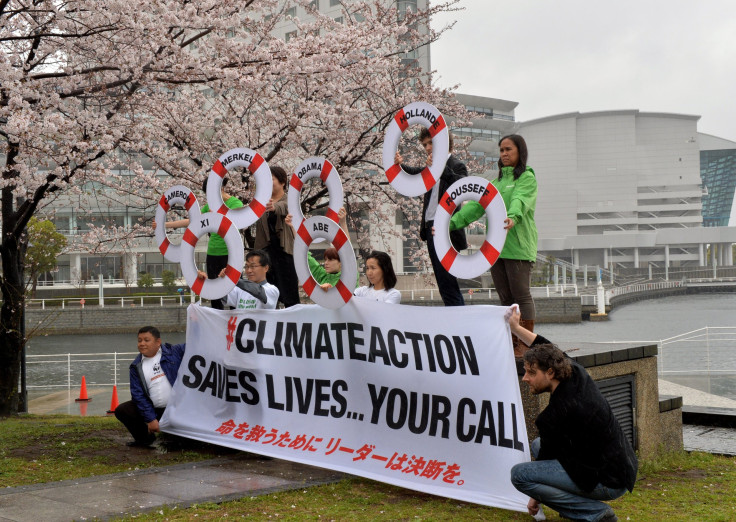Climate Change: Japan To Raise Aid For Developing Countries To $10.6B A Year By 2020

With 2015 right on track to become the hottest year on record, and a plethora of reports warning of increase in poverty and deaths caused by climate change-induced events, world leaders are now waking up to the severity of the crisis.
On Thursday, a day after the World Bank devised a $16 billion strategy to help African nations cope with the effects of a rapidly warming world, Japan pledged to raise its support for developing nations to 1.3 trillion yen ($10.6 billion) a year by 2020. So far, over the past two years, Japan, which is among the world’s top 10 emitters of greenhouse gases, has been allocating one trillion yen annually.
“Our country attaches importance to the participation of all countries in a new international framework,” Japanese Prime Minister Shinzo Abe reportedly said Thursday, while making the announcement. “I will attend COP21 and would very much like for an agreement to be reached on a new global framework to reduce greenhouse gas emissions.”
Among the issues that are likely to be discussed during the upcoming COP21 conference in Paris, there is none more contentious than that of the availability of climate funds for poor and vulnerable nations. Wealthy nations have pledged to mobilize $100 billion per year in climate finance by 2020, and, as of last year, they had reached nearly $62 billion. However, according to an Oxfam analysis, only $2 billion was made available to these nations, pointing toward a persistent gap between the rising costs of adaptation to climate change and international monetary support.
On Thursday, Abe also pledged to contribute $1.5 billion to the United Nations-backed Green Climate Fund, adding that his government would assist vulnerable nations by promoting the “development of revolutionary technology.”
For the first time since record keeping began in 1880, the global average temperatures are set to rise more than 1 degree Celsius (1.8 degrees Fahrenheit) above the pre-industrial levels. In addition to putting critical ocean and land ecosystems at risk, global warming-induced sea level rise and increase in frequency of extreme weather events have strained the vulnerable nations’ ability to cope with climate change.
For low-lying Pacific island nations, a rise in temperature of more than 3.6 degrees Fahrenheit above the pre-industrial levels -- the internationally accepted red line -- poses an existential threat.
Meanwhile, data released earlier in the day showed that Japan -- which plans to reduce emissions by 26 percent below 2013 levels by 2030 -- is making some gains on the home-front. The country’s greenhouse gas emissions fell 3 percent to a three-year low in the fiscal year ending March, primarily due to reduced power demand and growing renewable energy, according to a document released by the environment ministry. This marks Japan’s first annual drop in emissions since 2009.
© Copyright IBTimes 2024. All rights reserved.






















